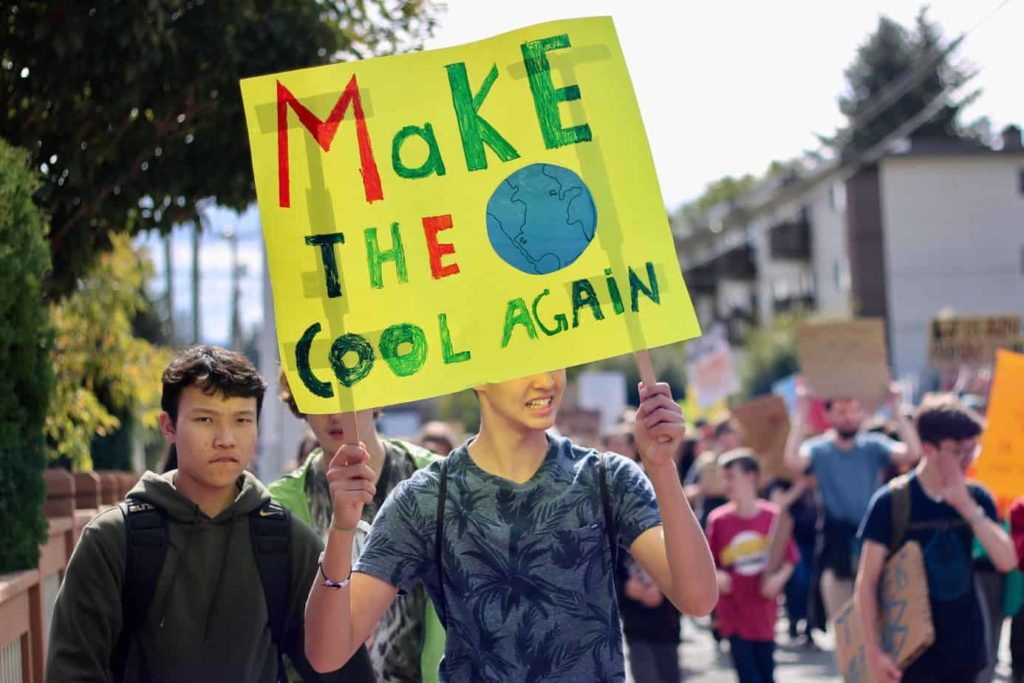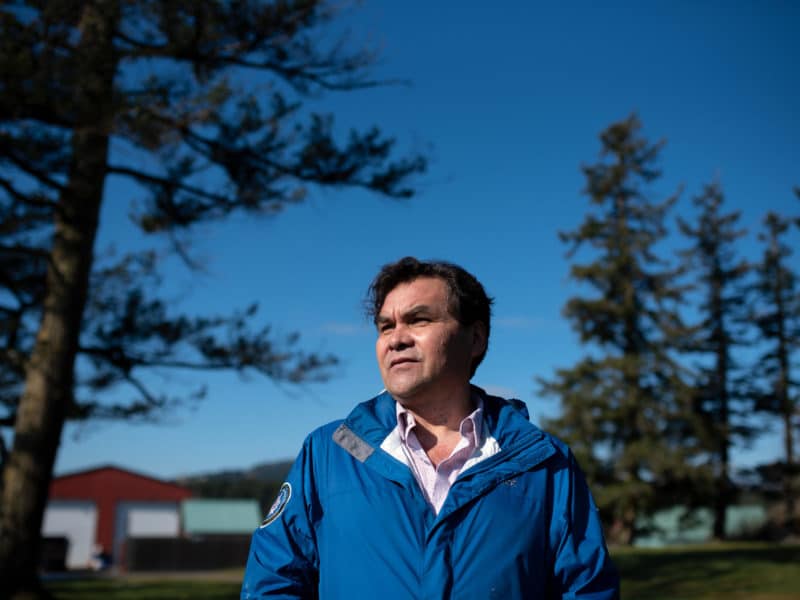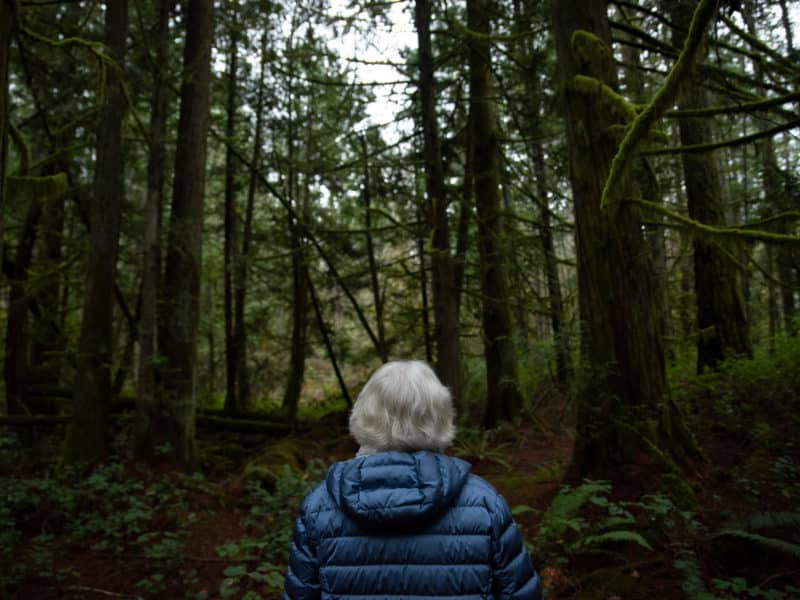
The Discourse has chosen to focus on the candidates running for the major parties, based on previous election results in each riding. Information on additional parties can be found here and a full list of candidates can be found here.
Issues such as the COVID-19 pandemic, reconciliation and the cost of housing have surfaced during this year’s election but climate change is still top-of-mind for Canadian voters, according to recent data from the Angus Reid Institute.
The Discourse’s readers had the opportunity to fill out a survey, telling us what they think should top the federal election agenda. In the Esquimalt-Saanich-Sooke riding, climate change was resoundingly the top issue identified by voters who filled out the survey.
For that reason, The Discourse reached out to major party candidates from the Esquimalt-Saanich-Sooke riding to ask them about their stance and commitments on climate change. The candidates submitted emailed responses, which have been lightly edited for length and clarity. At the bottom of this article are a list of resources for further reading on the commitments of the major parties.
Related story: Election 2021: A guide for Esquimalt-Saanich-Sooke voters
Esquimalt-Saanich-Sooke candidates on climate change
Laura Frost – Conservative Party
Laura Frost has spent her entire professional life working with multiple levels of governments, including Indigenous and First Nations at home and abroad, in planning and delivering landscape restoration and remediation projects under a context of climate change scenarios.
Laura understands that Conservatives have a serious plan to combat climate change that allows us to meet our targets and reduce emissions by 2030, all while repealing the Justin Trudeau Carbon Tax.
Independent analysis, conducted by Navius Research, found that the plan would effectively achieve the same emissions reductions as the government’s current plan in 2030, while resulting in a boost to jobs and the economy.
We will fight climate change and protect the environment, but we won’t do it on the backs of hard working Canadians or by hurting our economy.
But Canadian carbon mitigation is not enough. With global carbon emissions expected to continue to rise due to large nation emitters, Canada will need to adapt.
For our local region, this means that we must be prepared for more frequent and likely longer summer droughts, than the two that we had in the last decade.
If elected, I will work hard to ensure that a priority for federal infrastructure investments will include a major contribution towards the construction of a substantial increase in the Greater Victoria freshwater reservoir capacity, to see us through such events.
Harley Gordon – Green Party
We are in a climate crisis. Not only do we have to deal with what’s coming, we have to deal with the changes that are already here.
The Green Party will provide increased funding for municipalities and regional districts for climate change mitigation and adaptation efforts (such as restoring wetlands and protecting watersheds).
The Green Party is the only party willing to take the bold steps needed to address the climate crisis, and work towards solutions.
The Green Party will cancel the Trans-Mountain Pipeline. If approved, the pipeline would increase oil tanker traffic along our coast, increasing the risk of oil-spills and putting our southern resident killer whales at risk.
The Green Party will ban fracking as the release of methane (natural gas) from wells contributes excessively to Canada’s greenhouse gas emissions.
The Green Party will protect our natural spaces, ensuring 30 per cent of natural areas in Canada are protected by 2030. This includes protection for endangered old-growth ecosystems.
These steps will contribute to a cleaner, greener, and more sustainable future for all Canadians.
Doug Kobayashi – Liberal Party
We must act urgently to mainstream the behavioural changes necessary in response to climate change.
My first action as a member of Parliament would be to call a community climate action town hall to help catalyze faster climate action right here at home.
I would reach out to Royal Roads University and the University of Victoria, for their world-class expertise in climate science, social science, communications and conflict resolution — skills vital to our mission.
During the Second World War, when Canada mobilized its citizens to grow victory gardens, the government led the marketing of the mission, getting people to dig in to take action and maintain hope on the home front. It was an all-hands-on-deck response. Everyone played a part, from the youngest to the oldest. People saw the impact of their efforts, big and small.
The stakes were impossibly high in the Second World War, but brave people persisted. Today, we again must come together as a community to respond to a global emergency. Our efforts must recognize climate change for the inter-connected challenge it is and bust down persistent silos in how we work and with whom we network.
Our response to climate change must be fully integrated across disciplines, non-partisan, inter-generational and multicultural. Action must be driven up from the grassroots and down from the governments — with everyone at the table. We cannot afford to leave anyone behind.
Our transition to a cleaner, greener future must be just. Our first community climate action town hall will be organized within 90 days of my being elected.
Randall Garrison – NDP
My commitment to the environment has been unwavering all my life. On the very first Earth Day, my friends and I took action by blocking vehicle traffic with our bicycles. On that day and ever since, I committed myself to taking action on protecting our environment and addressing the climate crisis. I did my first speaking tour of B.C. secondary schools warning of the dangers of global warming more than 30 years ago. As a councillor in Esquimalt, I was the first elected official in B.C. to get a motion adopted opposing the Trans Mountain Expansion project and an increase in tanker traffic in our coastal waters.
As a member of Parliament, I partnered with scientists and stakeholders to put recommendations for an action plan to ensure the survival of the southern resident killer whales into a motion in the House of Commons. I introduced legislation that would ensure protections for local watersheds under the Navigable Waters Act and I have fought to protect our wild salmon stocks.
We are at a critical moment in Canada. We must act on the climate crisis as the emergency that this summer’s heat and wildfires have shown us it is. At the same time we have to make sure that working families don’t pay the costs of the necessary transition with their jobs. That’s why I introduced a motion in Parliament that does just that. [The motion] would end all fossil fuel subsidies and redirect those funds to the establishment of a crown corporation to begin creating good, family supporting jobs in every community across the country.
I believe my record shows my commitment to taking action on the environment and to acting on the climate crisis like the emergency it is.
What local candidates said during The Discourse’s election forum
The Discourse held an election forum with Esquimalt-Saanich-Sooke major party candidates on Sept. 9, 2021. Doug Kobayashi (Liberal Party), Randall Garrison (NDP) and Harley Gordon (Green Party) attended. Conservative candidate Laura Frost was also invited but declined, citing a prior commitment. Video from the forum can be found here.
At the 22:58-minute mark in the video, candidates answer the question: What are three actions you will take to address the climate emergency in this riding?
The national perspective: select readings
- The Narwhal boils down how party platforms have addressed three key points related to climate change and environmental issues.
- The Toronto Star has analyzed Liberal, Conservative, New Democrat and Green party policies and distilled them into a tool so you can see where each party stands. The climate crisis is one of the issues highlighted in this tool.
- CBC News compares how major party platforms address emissions reductions targets, carbon pricing, if party plans to address climate change will work and how the plans will transition Canada to a lower-carbon economy. This article is accompanied by a podcast episode from the CBC show What on Earth, another from CBC’s The Current and more video and audio clips.
- APTN News spoke with experts and observers to gauge what each major party is proposing when it comes to addressing the climate crisis. [end]



